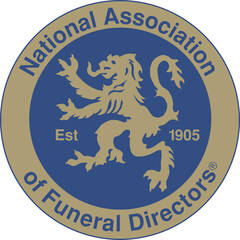The Benefits Of Having A Plan For When The Time Comes

Nobody wants to have a conversation about having a plan for when the time to die eventually comes. However, there are many benefits to thinking through several aspects concerning your end-of-life, having those all-important life conversations and having a plan of sorts in place.
We look at these in more detail in this blog, which we hope will help you to understand the importance of end-of-life planning. We also consider the challenges that your family may face if you don’t have this discussion ahead of time. Without a plan in place, the burden can fall on those left behind.
Why is it important to have a plan for when the time comes?
It is not always an easy discussion to start, but having a plan in place for when the time comes is designed to help your loved ones at a time of great emotional challenge. By talking through your thoughts and wishes it puts you in charge and means your loved ones are greatly comforted at a difficult time knowing they won’t have to second-guess what you might have wanted.
Research suggests most of us think it’s a good idea
Most people feel that having a plan for when the time comes is essential, but few take any action. This is highlighted in research carried out by Cardiff University’s Marie Curie Palliative Care Research Centre about attitudes to death and dying in the UK. Out of the 8,077 adults surveyed, 90% agreed that planning was essential, but only 14% had formally done anything about it.
Major benefits for making arrangements for end of life
By having a plan for when the time comes, you are in charge of making:
- Decisions about your health
- Planning your funeral
- Creating a will
- Choosing your executors
- Considering the tax implications
- Taking out life insurance
- Arranging for a Lasting Power of Attorney (LPA)
Making decisions about your health
It can be advisable to consider how you would plan should you be met by poor health, serious illness, or unexpected accidents. By having a plan in place, you will be able to incorporate your decisions on the following questions.
- Do you want to go to a nursing home?
- Would you want to undergo prolonged treatments with little chance of success?
- Do you want to die at home or in a hospital?
- What degree of life saving treatment do you want to undergo?
- Make a decision on ‘do not attempt cardiopulmonary resuscitation’ (DNACPR)?
Making your own funeral plan for when the time comes
By making your own funeral plan, your loved ones and friends can celebrate your life in a way you wanted them to and say farewell how you would have preferred. By planning your own funeral, you will be in charge of the funeral style and funeral cost. Decisions could be taken around such questions as:
- Cremation or burial?
- Funeral service at a church prior to burial or cremation?
- Funeral service at the crematorium?
- A graveside service – cemetery or woodland burial?
- Unattended direct cremation?
- Readings, music and images?
- Speakers – who you would like to express your life and personality?
- What to do with your remains?
- Venue for the ceremony and/or hospitality?
- Guests – who would you like to be there?
- Research funeral providers and the costs?
- Obituary?
Ensure you have a will in place
When you plan for when the time comes, it will really help if you have a will prepared. When considering your estate, a will is the only way to ensure your money, investments, property, and possessions go to the people or causes you want. You can also consider what will happen to the care of minor children, pets, family heirlooms and specifying an executor. If you die without making a will, you will die ‘intestate’ and your estate may not go to the people you want to have it.
Choose your executors…carefully and wisely
By having a plan for when the time comes, It gives you the opportunity to choose the people who will be responsible for carrying out the instructions you have left in your will. You can select as many as four, but make sure you choose two. By planning ahead, you can make wise decisions about the people you put in place. You can check with them that they are happy to undertake the responsibility and that they will have the time to do it. Executors can be family, friends a solicitor or an accountant.
Consider legitimate ways to reduce your inheritance tax liability
Any assets left to your spouse or to a charity are free from inheritance tax. However, any requests above £325,000 or £500,000 to direct descendants are taxed at 40%. Therefore, tax implications can be heavy. By having a plan for when the time comes will allow you to look for legitimate ways to reduce your inheritance tax bill. Any gifts made at least seven years before you die are tax-free and you can gift £3,000 each year.
Take out life insurance
With life insurance, you can leave a legacy and you can help to contribute to the future cost of living for any dependents. You can also give a small sum to help cover the costs of your funeral. Making this provision early will give you peace of mind and of course those you leave behind. It can be hugely reassuring as well as having a positive effect on your own wellbeing.
Arrange for a Lasting Power of Attorney (LPA)
This is a legal document that lets you (the ‘donor’) appoint one or more people (known as ‘attorneys’) to help you make decisions or to make decisions on your behalf. It gives you more control over what happens to you should you have an illness or an accident and cannot make your own decisions. Having a plan in place will give you the opportunity to choose who has LPA, as there can be more than one person. They will be able to make decisions about your daily routine, medical care and life-sustaining treatment when considering health and welfare, although it can only be used when you are unable to make your own decisions. The LPA can also manage bank and building society accounts, pay bills, collect pension and benefits and sell your home.
Compile lists with account details
It can be time-consuming and sometimes impossible locating all of your accounts so creating a list can be very helpful to your executor/s. Here you can include all of your bank and savings accounts and the social media you used.
- Assets
- Debts
- Bank accounts
- Savings accounts
- Premium bonds
- Social media
Benefits of making a plan for when the time comes in a nutshell
- Avoid the family having to make the decisions
- Estate planning is covered
- Wishes are shared with loved ones
- Social media wishes are outlined
- Creative about planning
- Funeral is pre-planned
- Wishes are delegated
How can CPJ Field help?
CPJ Field fully appreciates how difficult it is to have the conversation and to start to talk about death with family and friends. We hope that by outlining the benefits of having a plan in place, when the time comes, a difficult time for those loved ones around you will be made that little bit easier, safe in the knowledge that they are carrying out your wishes.
As a 10th generation family business, we have been arranging funeral services for over 300 years and have a wealth of experience in supporting families through this challenging and complex time. If you are unsure of your funeral options, please contact your local CPJ Field funeral director. We have a highly trained and compassionate team who will be able to help you irrespective of whether your loved one had a plan in place or not.





